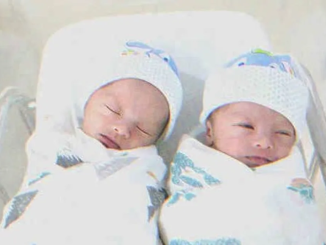Sutherland was born July 17, 1935 in New Brunswick, Canada, later moving to Bridgewater, Nova Scotia. Throughout his childhood he battled a number of serious illnesses including polio, rheumatic fever and spinal meningitis.
He left Canada to pursue an interest in acting at the London Academy of Music and Dramatic Art, and soon found work in TV and low-budget films.
He got a Hollywood breakthrough in the classic war film The Dirty Dozen, whose ensemble cast includes Lee Marvin, Charles Bronson, Ernest Borgnine and Jim Brown. It was the fifth highest grossing film of 1967.

After leaving London for Hollywood, Sutherland landed one of his most iconic roles in the 1970 anti-war comedy-drama MASH, originating the role of “Hawkeye” Pierce. MASH was one of the most successful films of the decade and is regarded as a classic.
Throughout the ’70s, Sutherland was a Hollywood leading man: his films include in the Oscar-winning Klute opposite Jane Fonda, the psychological horror Don’t Look Now, and the remake of Invasion of the Body Snatchers. He also appeared in the hit comedy Animal House.
In 1980, he starred in Robert Redford’s Ordinary People, which won the Academy Award for Best Picture. Other major films include Backdraft, JFK, Six Degrees of Separation, The Italian Job and Pride and Prejudice.

Sutherland also had success on TV, winning an Emmy Award for the 1995 film Citizen X, and a Golden Globe for the television film Path to War.
A younger generation of moviegoers was introduced to Sutherland through The Hunger Games, the hit dystopian blockbuster series: Sutherland starred as the villainous President Coriolanus Snow.
Though he surprisingly never received an Oscar nomination, he received an Academy Honorary Award in 2017, “for a lifetime of indelible characters, rendered with unwavering truthfulness.” He also received a star on the Hollywood Walk of Fame in 2011, and on the Canadian Walk of Fame in 2000.

Sutherland was married three times; he was married to actress Francine Racette for 52 years until his death. He was previously married to Lois May Hardwick and Shirley Douglas, and also had an affair with his Klute co-star Jane Fonda.
He had five children — including most famously his son Kiefer Sutherland, the actor best known for playing Jack Bauer in 24.
”I was too young to go watch my father’s films in the cinema,” Kiefer Sutherland told The Hollywood Reporter in 2017. “By the time I hit 20, VHS was available and a friend of my fathers had a lot of his films. In three days I watched Don’t Look Know, Klute, M*A*S*H, Kelly’s Heroes, 1900 and Fellini’s Casanova.”
“It was such a wide spectrum of characters, and I remember calling him up and I felt really badly that I grew up not knowing what a profoundly special actor he was, I felt horribly guilty of that. As a young actor, I had never known or seen another actor who’ve done characters so diverse either.”

Rest in peace to the iconic actor Donald Sutherland who lent his talents to so many great, classic movies — you will be missed 💔😢
I Caught My Husband on Tinder and Messaged Him Using a Fake Account — He Thinks He’s Cheating, but It’s All Part of My Revenge Plan

Deception, betrayal, and a meticulously crafted plan for revenge are at the heart of my story. I thought I knew my husband until I stumbled upon his online escapades. Little did he know his secret affair was about to become the key to my liberation.
The day my friend sent me a link to my husband’s Tinder profile, I felt my heart drop into my stomach. Dexter, my husband of ten years, was out there pretending to be single, swiping left and right like a teenager. Fury, confusion, and betrayal hit me all at once.
As days went by, my anger turned cold and calculating. I knew I couldn’t just confront him and have a big fight. That wouldn’t solve anything, especially since I had no job and no source of income after years of taking care of the house and our kids.
I needed a plan. I decided to create a fake Tinder account using photos of a random woman. Let’s call her Leah. It was easy to set up, but finding Dexter’s profile took some time and a lot of nerves.
Finally, his profile came up, with him smiling that same smile that had once made me fall in love. I took a deep breath as I swiped right. Fortunately, we matched right away. GAME ON!
The first step was to build a connection. I knew everything about Dexter: his favorite movie (“The Godfather”), his favorite whiskey (Glenfiddich), and even his secret love for 80s pop music. Using Leah’s profile, I mirrored his interests and crafted a persona that would be irresistible to him.
I made sure to mention my love for “The Godfather” in my bio and put up a picture of Leah holding a glass of Glenfiddich. I knew exactly how to pull him in. We started chatting, and he took the bait. Our conversations were filled with flirty banter and deep talks about life.
“Wow, you love ‘The Godfather’ too?” Dexter messaged. “It’s my all-time favorite movie.”
I replied as Leah, “Yes, it’s a masterpiece! And Glenfiddich is my go-to drink while watching it. What about you?”
“Same here,” he wrote back. “Nothing beats a good movie and a great whiskey.”
He told Leah about his dreams and fears, things he hadn’t shared with me in years. “Sometimes, I feel like I’m stuck in a rut,” he confided one evening. “I have all these plans, but I can’t seem to make them happen.”
“I’m here for you,” I typed. “You can talk to me about anything.”
Every evening, I’d sit on the couch next to him, pretending to scroll through my phone while he texted Leah. It was surreal, living under the same roof and harboring so many secrets. I’d glance at him out of the corner of my eye, watching as he smiled at his phone, completely engrossed in his messages to Leah.
After a few weeks of daily chats, I knew he was hooked. It was time for phase two: gaining his trust. I started hinting at financial troubles, weaving tales of sudden car repairs and unexpected medical bills.
Over the next few days, I continued to spin stories of desperation to Dexter through Leah’s account. He was eager to help, wanting to be her knight in shining armor. It didn’t take long for him to start transferring money to the account I had set up.
“I don’t ever want you to feel alone, Leah. You can always count on me,” he texted Leah one day while sitting right next to me. “Remember, I’m only a message away.”
This Dexter that I had come to know as Leah was someone I didn’t recognize as Phoebe. It pained me to continue the game, but I knew I had to keep going.
Each sob story I fed him made him more determined to save this imaginary woman. Living this double life was exhausting but thrilling. Every day, I played the devoted wife, making breakfast for our kids and chatting with Dexter about his day at work.
Every night, I transformed into Leah, the damsel in distress who had him wrapped around her finger. “Dex, I don’t know how to thank you enough,” I texted. “You’ve been my rock through all of this.”
“I just want to see you happy,” he responded. “I’ll do whatever it takes.”
I watched as he fell deeper into the trap, blinded by his infatuation and guilt. He was constantly checking his phone, eager for Leah’s messages, completely unaware of the truth that lay just beneath the surface.
The third step was all about increasing the stakes. With his trust secured, I began to ask for larger amounts, weaving elaborate stories that played on his desire to be a hero. One evening, I texted him as Leah, “Dex, I don’t know what to do. My car broke down, and the repair costs are way more than I can afford. I’m so scared I’ll lose my job if I can’t get to work.”
He replied almost instantly, “Don’t worry, Leah. I’ll take care of it. How much do you need?”
“About $1,500,” I wrote back, holding my breath.
“Consider it done,” he replied, and minutes later, the money was in my account.
Each transaction brought me closer to my goal. I asked for help with rent and then “emergency” medical procedures for a sick family member. Dexter was more than willing to help, convinced he was the hero Leah needed. What he didn’t realize was that he was funding my escape.
While he was distracted by his affair, I meticulously planned my departure. I found a new place to live, made arrangements for the kids, and discreetly packed our essentials.
Every day, I gathered a little more evidence of his infidelity and financial transactions, making sure I had enough to protect myself if he tried to contest anything later. I took screenshots of our chats, saved copies of bank statements, and even recorded a few of our conversations where he talked about his “true feelings” for Leah.
“Leah, I feel like I can be honest with you,” he wrote one evening. “I’ve never felt this way before. You understand me in a way no one else does.”
“I’m glad you feel that way,” I replied, heart pounding. “I care about you a lot, Dex.”
“I care about you too,” he responded. “Sometimes I wonder what it would be like if we could be together for real. I know it sounds crazy, but I think I might be falling for you.”
Reading his confession, I felt a mix of anger and satisfaction. I saved the conversation, knowing it would be crucial later. He had no idea that his heartfelt messages were sealing his fate.
The final step was to reveal my plan. I knew the perfect way to do it. I sent him a final message from the fake account, arranging a meet-up at a fancy restaurant.
“Dex, I feel like we’ve known each other forever. I think it’s time we finally meet in person. How about dinner at The Grand at 8 p.m. this Friday?”
He replied within seconds, “I’ve been waiting for this moment, Leah. I’ll be there.”
On the day of the meeting, I felt a mix of excitement and nerves. This was it.
I dressed in my best outfit, a simple yet elegant black dress that Dexter always said was his favorite. I wanted to look my best when I confronted him. I arrived at The Grand a bit early and took a seat at a quiet corner table where I could see the entrance clearly.
I ordered a glass of wine and sat there, watching the clock tick closer to 8 p.m. Finally, Dexter walked in, looking around eagerly. He was wearing the suit I had bought him for our anniversary a few years ago. He looked nervous but excited, completely unaware of what was about to happen.
As he scanned the room, I stood up and walked over to him. “Dexter,” I said, my voice steady.
He turned, his eyes widening in shock. “Phoebe? What are you doing here?”
“I could ask you the same thing,” I replied, holding up a folder. “But I think you know.”
He looked at the folder, confusion and panic mixing on his face. “What’s that?”
“Let’s sit down,” I suggested, guiding him to the table I had been sitting at. He followed, still looking dazed.
Once we were seated, I placed the folder in front of him. “Open it,” I said.
With shaking hands, he opened the folder and began to go through the contents. Inside were screenshots of our conversations, evidence of his infidelity, and a detailed list of all the money he had sent to Leah’s account—my account. His face turned pale as he realized he had been played.
“I knew all along,” I said calmly, watching him. “This was my way of getting back at you and securing my freedom. The money you sent to your ‘lover’ will help me and the kids start a new life away from you.”
He looked up at me, his eyes filled with a mixture of guilt and anger. “Phoebe, I can explain—”
“There’s nothing to explain,” I cut him off. “You betrayed me, Dexter. You made vows to me, and you broke them. Now, you’re going to face the consequences.”
He opened his mouth to argue but closed it again, realizing the evidence was undeniable. There was nothing he could say to make it better or take back what he had done.
I stood up, feeling a weight lift off my shoulders. “I’m leaving, Dexter. Don’t try to find us, and don’t think you can contest anything. I have all the evidence I need to make sure you don’t.”
He sat there, stunned, as I walked out of the restaurant. I felt a strange sense of satisfaction and freedom as I left him behind. That evening, I moved into our new home, taking the kids with me. The money I had accumulated ensured we were comfortable and had a fresh start.
The new place was cozy, nothing extravagant but perfect for us. The kids were a bit confused at first, but I explained it was a new adventure. They were excited about their new rooms, and I felt a sense of relief knowing we were safe and away from Dexter’s deceit.
Over the next few days, I settled into our new life. I enrolled the kids in a new school and started looking for a job. With the money Dexter had unwittingly provided, we were stable for the time being. I even found myself smiling more, feeling lighter than I had in years.
One evening, as I was tucking the kids into bed, my daughter looked up at me and said, “Mom, are we going to be okay?”
I smiled and kissed her forehead. “Yes, sweetheart. We’re going to be just fine.”
As I sat in the living room later, sipping a cup of tea, I reflected on everything that had happened. Revenge is best served cold, and Dexter learned that the hard way. He thought he was cheating, but he was just falling into my trap. Now, I am free, financially secure, and ready to move forward without him.



Leave a Reply